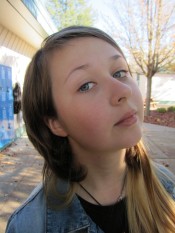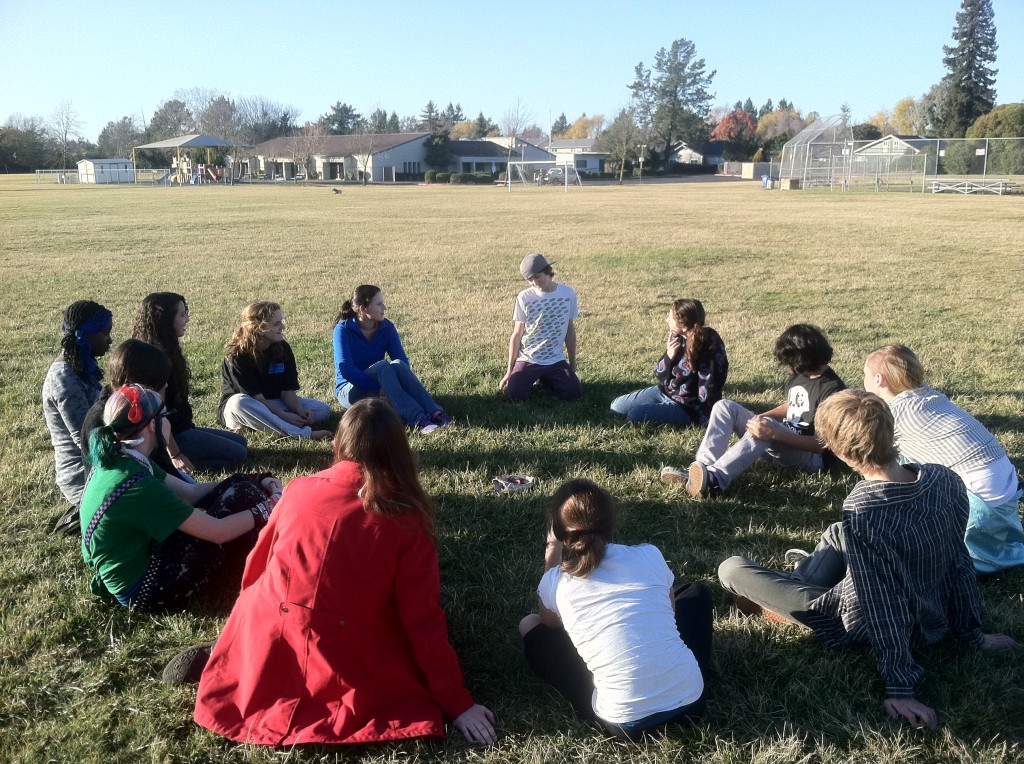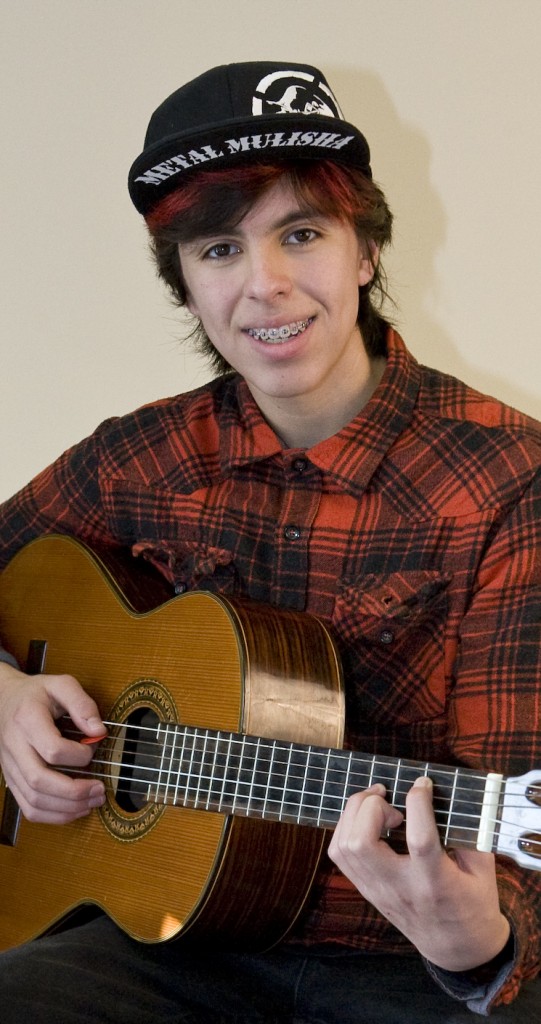Waldorf News
Social and Personal Sustainability at Credo High School

By CHIP ROMER
Social Sustainability
Credo developers recognized that how students communicate, collaborate, resolve conflict, build consensus and support one another is as important to their success as the academic and artistic content they learn. In 2008, psychologist and organizational developer Terri Ellis joined Credo as Lead Process Developer, with the mandate to ensure that the community develop “relationships and networks that, through collective actions, improve the quality of life.” In light of this, the Credo Development Team met monthly for thirty months, doing biography work to better understand themselves and one another, learning team-building exercises and communication and decision-making practices, and, led by Educational Director Thom Schaefer, pursued a deep study of human development.
In planning curriculum, there was a strong commitment to bring these social skills to Credo students so that they will be prepared to be leaders and creative problem solvers in the social realm. A cohort structure was created for Credo, where there are smaller “families” of students within each grade level, led by a partnership of male and female teachers in the roles of “cohort guides.” As the school grows to over 600 students, it is hoped that students will develop a meaningful connection with their guides and a deep sense of belonging and community through the relationships in their specific cohort.
Structurally, the cohorts take all of their Morning Lesson classes together, do their fall Adventure Learning and spring Service Learning weeks together, and meet as a group with their cohort guides for a weekly class called Social Sustainability. “Our Adventuring Learning experiences establish social bonds that could never happen in a classroom,” said Mr. Schaefer. “On a week-long backpacking trip, students live with one another around the clock—this yields an instant experience of community. In the evenings we hold circles to review the day and to process individual and group challenges and accomplishments. This kind of ritual is integral to creating an effective social community.”
 Like all learning at Credo, the Social Sustainability classes are experiential—students learn problem solving techniques while solving real problems. They learn how to collaborate by collaborating. They learn effective communication processes by communicating in a specific form about real issues that need resolution. Much of the curriculum for these classes is contributed by Mr. Schaefer, who has taught social-emotional learning to high school students for many years.
Like all learning at Credo, the Social Sustainability classes are experiential—students learn problem solving techniques while solving real problems. They learn how to collaborate by collaborating. They learn effective communication processes by communicating in a specific form about real issues that need resolution. Much of the curriculum for these classes is contributed by Mr. Schaefer, who has taught social-emotional learning to high school students for many years.
“We use techniques and resources that come out of Daniel Goleman’s work, specifically his best seller Emotional Intelligence. Socially, we want Credo students to be capable of self-management and empathy; to learn to be expressive; to develop sensitivity; to learn how to resolve conflicts. We practice these skills in a three-part weekly lesson. First, students do a unifying warm-up exercise that establishes their sense of the group; these could be reflective journal writing, trust exercises or small-group dialogues. Second, we create form and build skills by learning or reviewing a processing technique, such as the Way of Council or the World Café process that surfaces collective knowledge. Third, we use that technique to address specific issues that might have arisen during the week or to explore the ongoing issues of adolescence. When we create safety and comfort through form, some deep sharing can occur.”
Working together in Social Sustainability class, Credo students have been able to build consensus about some basic agreements about how they intend to relate with one another, including:
• confidentiality
• peaceful freedom of expression
• respectful listening
• honoring group conversation with quiet listening
• making a personal investment to participate and contribute
• no putdowns
• no pressure.
“Our students are learning some very valuable and practical skills,” Schaefer concluded. “Already in them I can see the light of hope for a more peaceful world.”
Personal Sustainability
When one of Credo High School’s overextended development team members worried that she couldn’t keep up with all of her responsibilities, her colleagues decided it would be important to help Credo students avoid this too-familiar contemporary pattern. They developed a goal to teach students about personal sustainability.
Taught by Vanessa Eyen, MA, who earned her masters in Community Counseling at Sonoma State, the Personal Sustainability class at Credo meets for 65 minutes every Thursday. Based on Native American traditions, the class incorporates the Way of Council with Medicine Wheel teachings and primitive living skills. Way of Council is an ancient indigenous practice used to build communication and connections between people; Credo students use this practice to learn how to express themselves authentically and to listen deeply to others. The Way of Council has four intentions: listening from the heart, speaking from the heart, being lean of expression, and confidentiality.
The Medicine Wheel is a model used by cultures around the world to describe the stages of human development. Students use the four directions as an approach to explore their past, present and future personal development in relationship to themselves, their family, their community and the environment. Students complete weekly personal projects to support their development and present these projects in order to share their unfolding personal story with classmates.
“When students revive a favorite game from childhood to share with the class, they are reconnected in a visceral way to the young child they once were,” Vanessa Eyen explained. “This tends to awaken their hearts to a compassion for themselves and deeper understanding of and empathy for one another.”
 Other exercises, like sharing the lyrics to a favorite song, help students to find unconscious values within themselves and to have the skills and confidence to share their deep feelings with classmates. Students research their family lineage in order to better understand their ancestral roots and then create an artistic family tree to share with the class.
Other exercises, like sharing the lyrics to a favorite song, help students to find unconscious values within themselves and to have the skills and confidence to share their deep feelings with classmates. Students research their family lineage in order to better understand their ancestral roots and then create an artistic family tree to share with the class.
“Our intention is to give students the permission, techniques and motivation to look at where they come from and to use their developing consciousness to better understand formative experiences they have had in the past. We are carefully giving them the skills to develop self-awareness so that they can make informed choices that will help to sustain them in the present,” Eyen explained.
“We also want to help them imagine their futures. For example, students create a collage of the adult they would like to be at age thirty.”
Credo Education Director Thom Schaefer praises of the course: “Socrates’ guiding principle was ‘know thyself’ and our Personal Sustainability course follows in this auspicious lineage. Students learn techniques to become more self-aware and are encouraged to use their new self-awareness to make healthy choices, both in short term decision making and as they imagine their lives as adults. A secondary benefit of Personal Sustainability class is that we have a counselor directly connected to every student. While students are taught to look after themselves, Ms. Eyen is also looking after each student. This can lead to early intervention and support for students who may encounter emotional or social challenges, which are not uncommon in adolescence.”
Credo plans to continue the Personal Sustainability course for each of the four years of high school. “The better our students understand themselves, the better they will be prepared to understand others and the world they are about to inherit,” said Schaefer. “We’re here to support the development of healthy, self-aware, compassionate young people who can bring forth new impulses into the world.”
Learn more about Credo High School at credohigh.org.
 Caring for All Stages of Life
Caring for All Stages of Life Full-Time Teacher Education
Full-Time Teacher Education Quality Education in the Heartland
Quality Education in the Heartland Flexible preparation for your new grade
Flexible preparation for your new grade Roadmap to Literacy Books & Courses
Roadmap to Literacy Books & Courses ~ Ensoul Your World With Color ~
~ Ensoul Your World With Color ~ Association for a Healing Education
Association for a Healing Education Everything a Teacher Needs
Everything a Teacher Needs Great books for Waldorf Teachers & Families
Great books for Waldorf Teachers & Families Summer Programs - Culminating Class Trips
Summer Programs - Culminating Class Trips Bringing Love to Learning for a Lifetime
Bringing Love to Learning for a Lifetime
 Immersive Academics and Arts
Immersive Academics and Arts Jamie York Books, Resources, Workshops
Jamie York Books, Resources, Workshops Space speaks. Its language is movement.
Space speaks. Its language is movement. Transforming Voices Worldwide
Transforming Voices Worldwide The Journey is Everything
The Journey is Everything Waldorf-inspired Homeschool Curriculum
Waldorf-inspired Homeschool Curriculum Middle School Science With Roberto Trostli
Middle School Science With Roberto Trostli Train to Teach in Seattle
Train to Teach in Seattle Bay Area Teacher Training
Bay Area Teacher Training Apply Today: New Cohort Starts Nov. 2025
Apply Today: New Cohort Starts Nov. 2025 Waldorf Training in Australia
Waldorf Training in Australia RSS Feeds
RSS Feeds